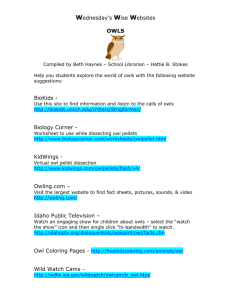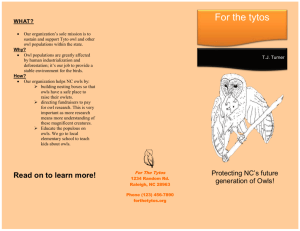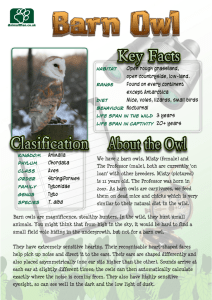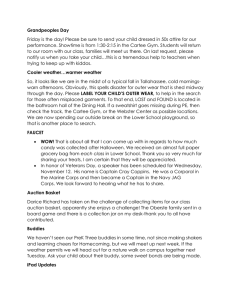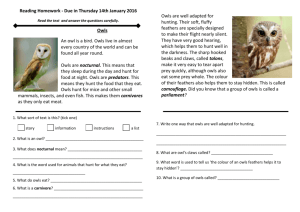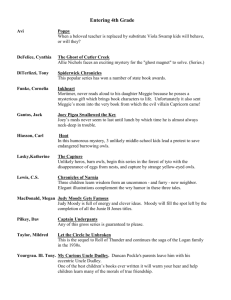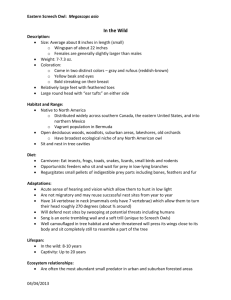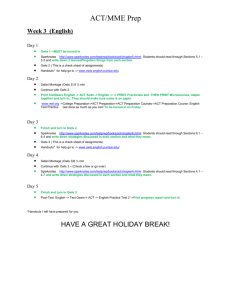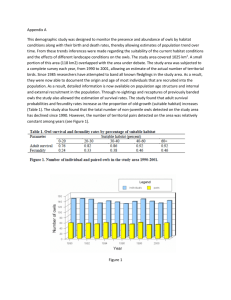Owls - High Point University
advertisement
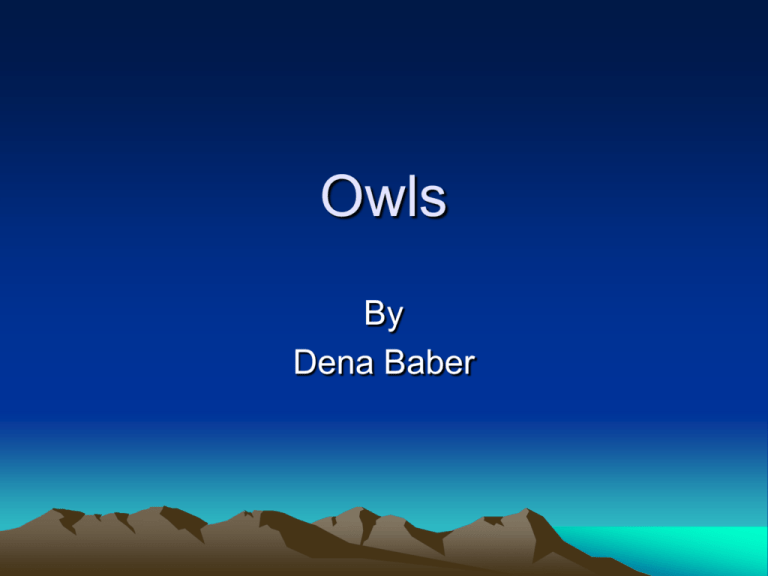
Owls By Dena Baber Introduction • • • • • Owls are a group of birds of prey. Most are solitary and nocturnal, with some exceptions (e.g. the Burrowing Owl). Owls mostly hunt small mammals, insects, and other birds, though a few species specialize in hunting fish. They are found in all regions of the Earth except Antarctica, most of Greenland, and some remote islands. Though owls are typically solitary, the literary collective noun for a group of owls is a parliament. Owl Eyes • • • • Owls have large forward-facing eyes and ears, a hawk-like beak, and usually a conspicuous circle of feathers around each eye called a facial disc. Although owls have binocular vision, their large eyes are fixed in their sockets, as with other birds, and they must turn their entire head to change views. Owls are far-sighted, and are unable to clearly see anything within a few inches of their eyes. Their far vision, particularly in low light, is incredibly good, and they can turn their head 135 degrees in either direction; they can look behind their own shoulders. It is not correct, however, that they can turn the head so far around to face completely backwards. How many licks? • Do you know how many licks it takes to get to the center of a tootsie roll pop? A group of engineering students from Purdue University recorded that their licking machine, modeled after a human tongue, took an average of 364 licks to get to the center of a Tootsie Pop. They tried the same licking test on 20 volunteers and found that the average licks to the center were 252 licks. Owl Pellets • Like all birds, owls have no teeth to chew their food. Their food is usually swallowed whole, or in large chunks. In the stomach, the indigestible bones, fur and insect exoskeletons are formed into ovalshaped masses, called pellets. • Here is a student doing a dissection of an owl pellet. Did You Know? • Some owls like the barn owl hiss instead of hooting. • Owls have facial discs that work like feathery satellite dishes to pick up the sounds of rustling leaves hundreds of yards away. • They can hunt down a mouse without any light at all, just by sound. • They have a special comblike toe for cleaning their feathers. • What do you get when you put a bee in front of an owl? A bowl
